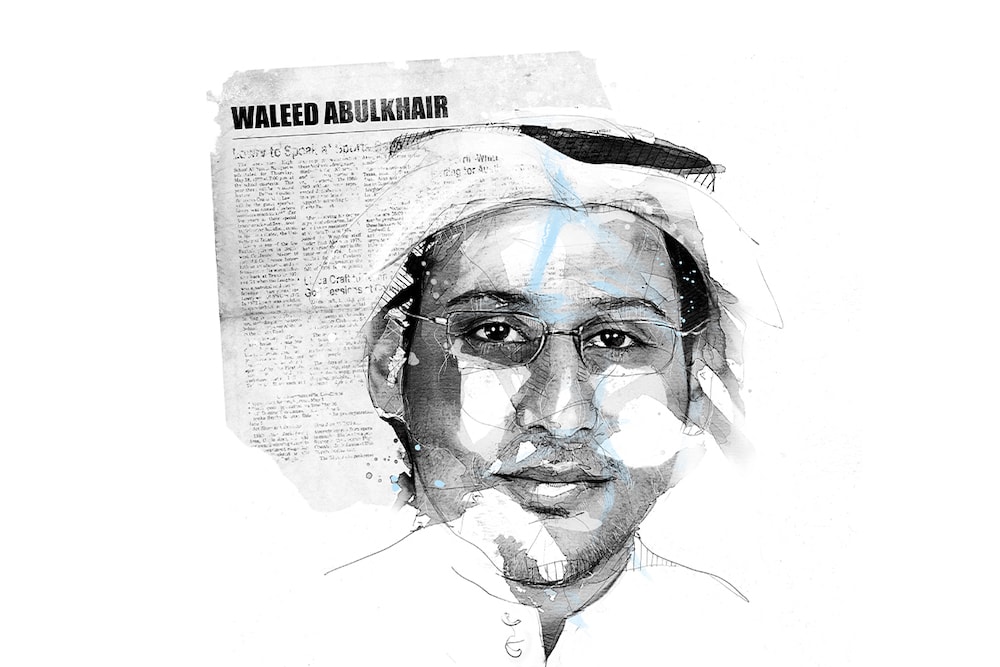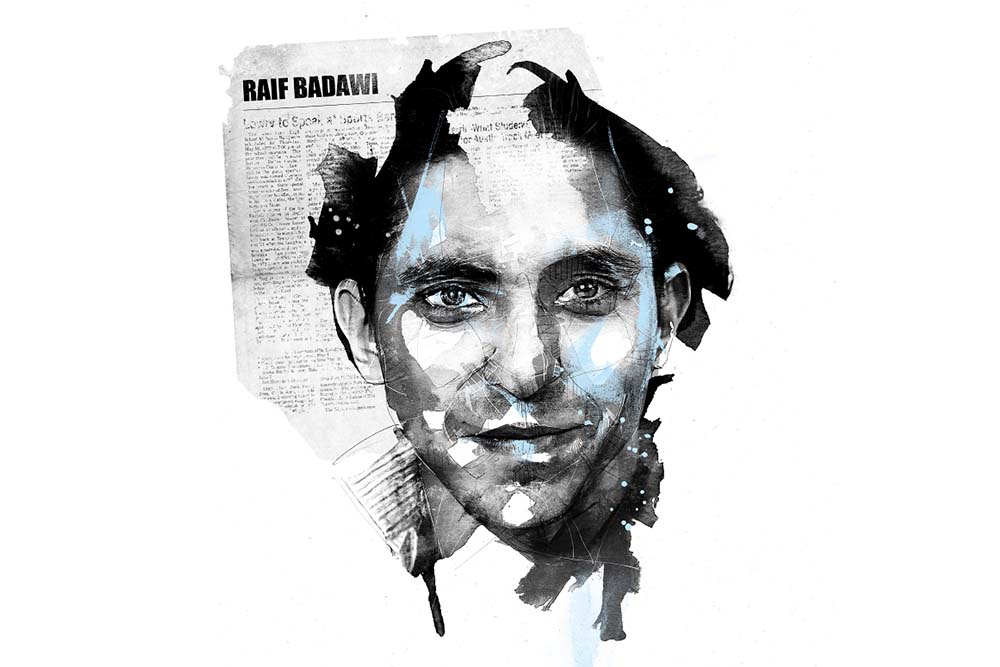Reform advocate and Raif Badawi's former lawyer, Waleed Abulkhair is paying a steep price for challenging the views of Saudi Arabia's religious and political leaders.
In an article that appeared in the Institute for War & Peace Reporting (IWPR) in July 2011, Waleed Abulkhair wrote: It is not easy to be an activist in Saudi Arabia. I have been taken into custody for investigation many times; I have been beaten; my wife is banned from leaving Saudi Arabia; and my Twitter, my Facebook account and my website are blocked. I have no doubt they want to put me in prison and one day this will happen – the authorities are just waiting for a good opportunity.
Waleed Abulkhair’s career as an advocate for human rights and fundamental freedoms began in 2007 when, along with several other activists, he published a statement in Arabic entitled “Parameters of a Constitutional Monarchy”. The statement requested that the Saudi Royal Family change the current ruling system from an absolute monarchy to a democracy. It also landed him squarely on the government’s radar.
Soon after founding the Monitor of Human Rights in Saudi Arabia (MHRSA) in 2008, the government shut down the organisation’s website, the first in a series of actions taken to obstruct its work. Abulkhair stayed the course.
By 2010, he had already started building his international reputation as a dependable source of information on the human rights situation in Saudi Arabia. In 2011, he was named by Forbes Middle East as one of the top 100 most influential Arabs on Twitter.
In 2012, Abulkhair and his wife, Samar Badawi, began hosting weekly gatherings in his living room where teachers, religious scholars, lawyers, and students could safely discuss sensitive issues freely. He called these gatherings Sumoud, which translates as steadfastness or resistance in Arabic. The word is now being used as a slogan for campaigns calling for his release.
Abulkhair met Samar in 2010 when she was in jail for disobeying her abusive father. He took up her case, and launched the first ever successful online campaign in Saudi Arabia, calling for her release. Within six days of the start of the campaign, the courts released her, and soon after, Abulkhair proposed.
Samar’s brother, Raif Badawi, is a prominent blogger and activist in Saudi Arabia, who served a 10-year prison sentence. Abulkhair served as his attorney up until his own arrest, on 15 April 2014.
Abulkhair was sent to Al-Ha’ir Prison, a notorious maximum-security prison south of Riyadh where both political and criminal prisoners are housed. He was prosecuted under Saudi Arabia’s terrorism law, which Human Rights Watch and other international organisations have deemed to be in violation of the right to due process and fair trial.
On 7 July 2014, the Specialized Criminal Court in Jeddah found him guilty of “undermining the regime and officials”, “inflaming public opinion”, and “distorting the kingdom’s reputation”. The court even applied the then-new ‘anti-terrorism’ law to Abulkhair’s case and sentenced him to 15 years in prison, followed by a 15-year ban on travel.
Samar told CNN that her husband does not accept the verdict, nor will he appeal it, as he doesn’t recognize the legitimacy of the court or its ruling. His sentence was upheld in January of 2015 and the appeal judge announced that he would serve the “full 15 years in prison, rather than a reduced sentence of ten years, as he had refused to apologise for his alleged offences”.
On 7 June 2016, Abdulkhair began a hunger strike to protest “against the prison authorities’ refusal to provide him with medical care he needs and his ongoing ill-treatment.”
Marking the tenth anniversary of his arrest on 15 April 2024, rights groups called for his unconditional release and for authorities to provide him immediate access to the medical care he requires.
Abdulkhair has received numerous prestigious human rights awards, including the Olof Palme Prize for his “strong, self-sacrificing, and sustained struggle to promote respect for human and civil rights for both men and women in Saudi Arabia.” He has also been honoured with the Ludovic Trarieux International Human Rights Award, the PEN Pinter Writer of Courage Award, the American Bar Association’s International Human Rights Award, and the Law Society of Upper Canada’s Human Rights Award.
Illustration by Florian Nicolle

